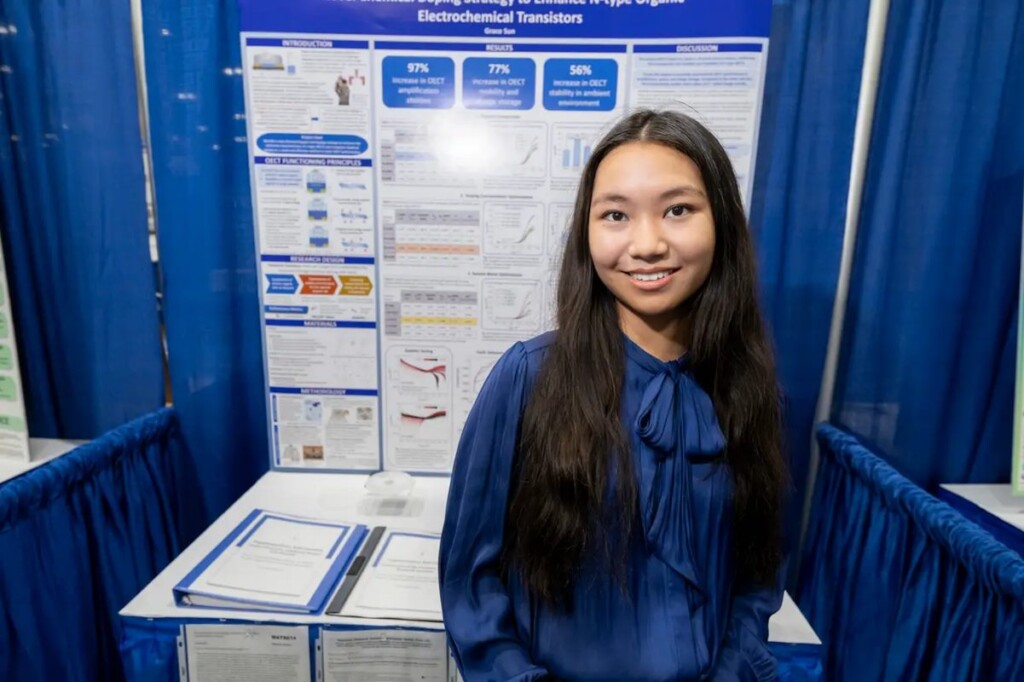16-year-old Wins $75,000 for Her Award-Winning Discovery That Could Help Revolutionize Biomedical Implants

First prize in the USA’s largest and most prestigious science fair has gone to a 16-year-old girl who found new ways to optimize the components of biomedical implants, promising a future of safer, faster, and longer-lasting versions of these critical devices.
It’s not the work of science fiction; bioelectronic implants like the pacemaker have been around for decades, but also suffer from compatibility issues interfacing with the human body.
On Friday, Grace Sun from Lexington, Kentukcy, pocketed $75,000 and was recognized among 2,000 of the nation and the world’s top STEM students as having produced the “number one project.”
The award was given through the Society for Science’s Regeneron International Science and Engineering Fair, one of the largest and most prestigious in the world.
Sun’s work focused on improving the capabilities of organic electrochemical transistors or OECTs, which like other devices made of silicon, are soft, flexible, and present the possibility of more complex implants for use in the brain or the heart.
LAST YEAR’S STELLAR WINNER: 17-Year-old Wins $150,000 in Science Talent Search for Remarkable Way to Diagnose Pediatric Heart Disease
“They have performance issues right now,” Sun told Business Insider of the devices. “They have instability in the body. You don’t want some sort of implanted bioelectronic to degrade in your body.”
Sensitive OECTs could detect proteins or nucleic acids in sweat, blood, or other transporters that correspond to diseases in their earliest stages. They could replace more invasive implants like the aforementioned pacemaker, and offer unprecedented ways to track biomarkers such as blood glucose, circulating white blood cell count, or blood-alcohol content, which could be useful for people with autoimmunity, epilepsy, or diabetes.
ALSO CHECK OUT: High School Student Invents an A.I. Powered Trap That Zaps Invasive Lanternflies
“This was our number one project, without a shadow of a doubt,” Ian Jandrell, a judging co-chair for the materials science category at ISEF, told Business Insider about Sun’s research.
“It was crystal clear that that room was convinced that this was a significant project and worthy of consideration for a very top award because of the contribution that was made.”
Sun says she is looking to develop the OECTs further, hoping to start a business in the not-too-distant future as a means of getting them out into the world and impacting real people as fast as possible.
SHARE This Inspiring Yong Woman’s Accomplishment With Your Friends…
>read more at © GoodNews
Views: 2